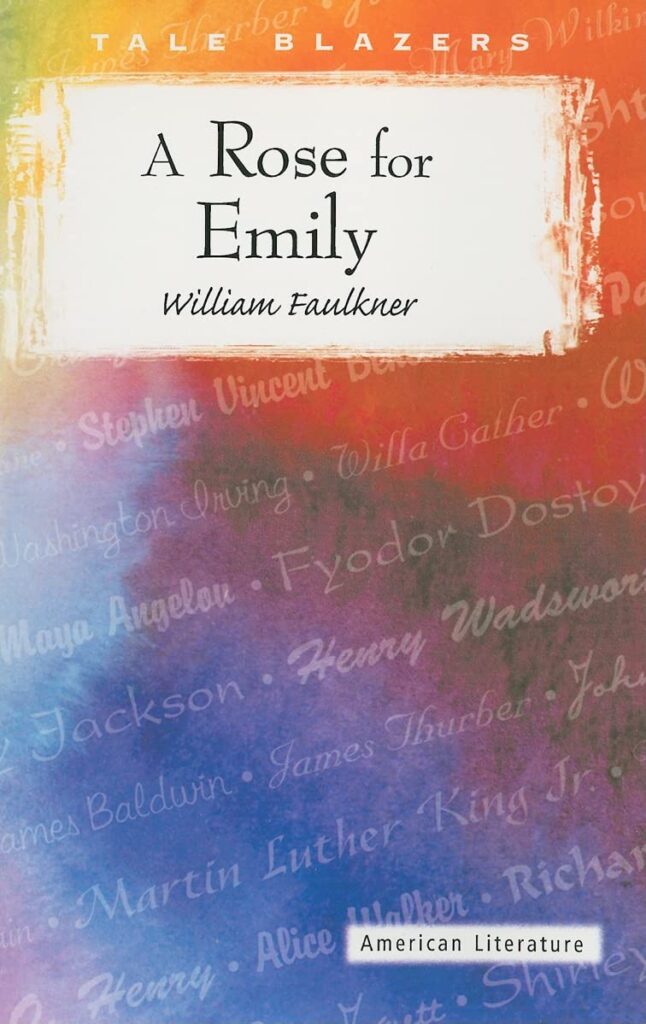Have you ever read a story that lingers in your mind long after you’ve finished it? A Rose for Emily is one of those stories. It’s a tale that stays with you, not just because of its shocking moments, but because of its deeper meaning that peeks through the layers of its gothic narrative. At first glance, you might think it’s just a strange and eerie story about an old woman and her secrets, but there’s so much more beneath the surface. So, what’s the main message of A Rose for Emily? Let’s dive into this fascinating tale and explore what it’s really trying to tell us.
1. The Weight of Tradition and Change
From the very beginning of the story, it’s clear that Miss Emily is stuck in time. She’s described as a relic of the past, living in a decaying house that once must have been grand but now looks as though it’s crumbling under the weight of years gone by. I think the most significant message in this story is how it portrays the tension between tradition and progress. The world around Miss Emily is changing rapidly, but she clings stubbornly to the old ways, refusing to adapt.
You can feel this tension especially in the way the town views her. They see her as a symbol of the Old South, an era that has long passed but still haunts them through Miss Emily. It’s like she’s frozen in time, unwilling to accept the inevitable changes that come with life. This inability to change and move forward is tragic, but also a little frightening, don’t you think? It makes you wonder how much of our own lives we spend resisting change when, in reality, it’s one of the few constants we have.

2. Isolation and Loneliness
Another key message that comes through in A Rose for Emily is the crippling effect of isolation and loneliness. Emily is an outcast in her own town, not because anyone actively pushes her away, but because she chooses to isolate herself. Her father, before he passed, kept her sheltered and away from the world, and after his death, she continues to live a solitary life.
The tragic part is that this isolation not only affects her social life but also her mental and emotional well-being. Emily’s loneliness grows into something far more sinister as the story unfolds. And while I can’t help but feel sympathy for her, it’s clear that her refusal to connect with the outside world leads to her downfall. What strikes me most is how loneliness can shape someone’s entire existence. It makes you think about the importance of human connection and how much we all need it to thrive.
3. The Power of Denial
Denial plays a massive role in A Rose for Emily. From the beginning, Emily denies the passage of time. She denies her father’s death, keeping his body for days before the townspeople intervene. She denies paying taxes, claiming an old arrangement from years ago absolves her from doing so. And most shockingly, she denies the reality of her lover’s departure by going to extreme lengths to keep him close, even after his death.
I think denial, in this story, is a form of control. Emily has very little control over her life—she’s a victim of her father’s strict upbringing, societal expectations, and the loss of loved ones. But through denial, she creates her own twisted sense of reality, one where she can preserve the things she cares about, even if it means defying the natural order of life and death. This theme reminds us that, while denial can be a coping mechanism, it can also trap us in a false sense of reality, leading to consequences far worse than we anticipate.
4. Death and Its Inescapable Grip
There’s no way to discuss A Rose for Emily without touching on the theme of death. It looms over the entire story, beginning with the town’s description of Emily’s funeral and ending with the chilling discovery in her house. What fascinates me most about how death is handled in this story is the way Emily interacts with it. For her, death is something she tries to defy, something she refuses to acknowledge fully.
Emily’s denial of death seems to stem from her desire to hold onto the past. When her father dies, she refuses to let go of his body until she’s forced to. When her lover, Homer Barron, tries to leave her, she ensures that he can never leave again—resulting in one of the most shocking twists in literature. It’s almost as if Emily believes that by keeping these people close to her, even in death, she can escape the natural cycle of life. It’s a haunting reminder of how far someone might go to avoid the inevitable, and it makes you wonder how we, in our own lives, come to terms with mortality.
5. The Judgment of Society
Lastly, I think the story touches on the often harsh judgment of society. Throughout A Rose for Emily, the townspeople observe Miss Emily from a distance, gossiping about her strange behaviors and speculating about her life. While they keep their distance physically, their judgment is always there, hovering over her like a dark cloud. It’s clear that they see her as an oddity, something to talk about but never truly engage with.
In many ways, society’s judgment shapes Emily’s fate. Instead of offering her help or companionship, the town treats her as a spectacle. They visit her home out of curiosity rather than concern, and by the time they realize the extent of her tragic life, it’s too late. This part of the story makes me think about how easy it is to judge others without truly understanding their struggles. It raises the question: how much of what happens to Emily is because of her own actions, and how much is a result of society turning its back on her?
6. Conclusion: What Is the Story Really Telling Us?
So, what’s the main message of A Rose for Emily? At its heart, this story is about the dangers of clinging to the past and refusing to change. It’s a cautionary tale about isolation, denial, and the inescapable nature of death. Through Emily’s tragic life, we’re shown how fear of change and loneliness can lead to destruction—not just of the individual, but of the people around them too.
But the story also holds a mirror up to society, asking us to reflect on how we treat those who don’t quite fit in. Are we quick to judge without truly understanding? And if we’re honest with ourselves, how much of Emily’s story resonates with our own fears of change, loneliness, and the passing of time?
What do you think? Is there a bit of Miss Emily in all of us?
7. Related Articles
You may also find the following articles helpful:
Key Takeaways and Lessons from William Faulkner’s Gothic Tale A Rose for Emily
Exploring the Themes of Isolation and Decay in A Rose for Emily




